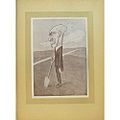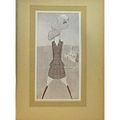
Philip Henry Gosse, known to his friends as Henry, was an English naturalist and populariser of natural science, an early improver of the seawater aquarium, and a painstaking innovator in the study of marine biology. Gosse created and stocked the first public aquarium at the London Zoo in 1853, and coined the term "aquarium" when he published the first manual, The Aquarium: An Unveiling of the Wonders of the Deep Sea, in 1854. His work was the catalyst for an aquarium craze in early Victorian England.

Sir Edmund William Gosse was an English poet, author and critic. He was strictly brought up in a small Protestant sect, the Plymouth Brethren, but broke away sharply from that faith. His account of his childhood in the book Father and Son has been described as the first psychological biography.

Sir Rupert Charles Hart-Davis was an English publisher and editor. He founded the publishing company Rupert Hart-Davis Ltd. As a biographer, he is remembered for his Hugh Walpole (1952), as an editor, for his Collected Letters of Oscar Wilde (1962), and, as both editor and part-author, for the Lyttelton/Hart-Davis Letters.

Sir Henry Maximilian Beerbohm was an English essayist, parodist and caricaturist under the signature Max. He first became known in the 1890s as a dandy and a humorist. He was the drama critic for the Saturday Review from 1898 until 1910, when he relocated to Rapallo, Italy. In his later years he was popular for his occasional radio broadcasts. Among his best-known works is his only novel, Zuleika Dobson, published in 1911. His caricatures, drawn usually in pen or pencil with muted watercolour tinting, are in many public collections.
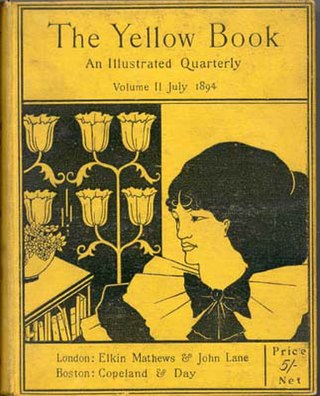
The Yellow Book was a British quarterly literary periodical that was published in London from 1894 to 1897. It was published at The Bodley Head Publishing House by Elkin Mathews and John Lane, and later by John Lane alone, and edited by the American Henry Harland. The periodical was priced at 5 shillings and lent its name to the "Yellow Nineties", referring to the decade of its operation.
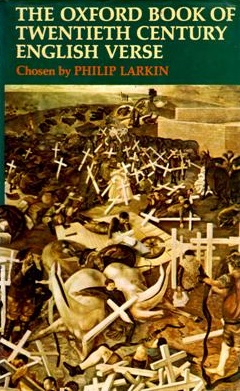
The Oxford Book of Twentieth Century English Verse is a poetry anthology edited by Philip Larkin. It was published in 1973 by Oxford University Press with ISBN 0-19-812137-7. Larkin writes in the short preface that the selection is wide rather than deep; and also notes that for the post-1914 period it is more a collection of poems, than of poets. The remit was limited by him to poets with a period of residence in the British Isles. Larkin's generous selection of Thomas Hardy's poems has been noted for its influence on Hardy's later reputation. On the other hand, he was criticized, notably by Donald Davie, for his inclusion of "pop" poets such as Brian Patten. The volume contains works by 207 poets.

Maurice Henry Hewlett was an English historical novelist, poet and essayist.
These are Oxford poetry anthologies of English poetry, which select from a given period. See also The Oxford Book of Twentieth Century English Verse and Eighteenth century women poets: an Oxford anthology.
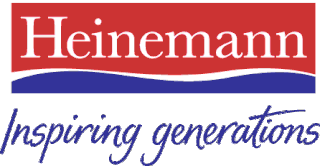
William Heinemann Ltd., with the imprint Heinemann, was a London-based publisher founded in 1890 by William Heinemann. Their first published book, 1890's The Bondman, was a huge success in the United Kingdom and launched the company. He was joined in 1893 by Sydney Pawling. Heinemann died in 1920 and Pawling sold the company to Doubleday, having worked with them in the past to publish their works in the United States. Pawling died in 1922 and new management took over. Doubleday sold his interest in 1933.
Arthur Waugh was an English author, literary critic and publisher. He was the father of the authors Alec Waugh and Evelyn Waugh.
The Stanhope essay prize was an undergraduate history essay prize created at Balliol College, Oxford, by Philip Henry Stanhope, 5th Earl Stanhope in 1855.
Théophile-Jules-Henri "Theo" Marzials was a British composer, singer and poet. Marzials was described in 1894 as a "poet and eccentric" by parodist Max Beerbohm, and, after writing and performing several popular songs, vanished into obscurity. His poetry is seen as an example of 19th-century aestheticism.
The Sketch was a British illustrated weekly journal. It ran for 2,989 issues between 1 February 1893 and 17 June 1959. It was published by the Illustrated London News Company and was primarily a society magazine with regular features on royalty, aristocracy and high society, as well as theatre, cinema and the arts. It had a high photographic content with many studies of society ladies and their children as well as regular layouts of point to point racing meetings and similar events.
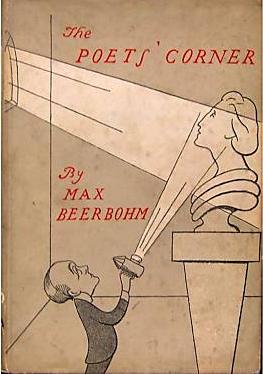
The Poets' Corner is a book of twenty caricatures by English caricaturist, essayist and parodist Max Beerbohm. It was published in 1904 by William Heinemann, and was Beerbohm's second book of caricatures, the first being Caricatures of Twenty-five Gentlemen (1896).

Rossetti and His Circle is a book of twenty-three caricatures by English caricaturist, essayist and parodist Max Beerbohm. Published in 1922 by William Heinemann, the drawings were Beerbohm's humorous imaginings concerning the life of Dante Gabriel Rossetti and his fellow Pre-Raphaelites, the period, as he put it, "just before oneself." The book is now considered one of Beerbohm's masterpieces.

A Christmas Garland, Woven by Max Beerbohm is a collection of seventeen parodies written by English caricaturist, essayist and parodist Max Beerbohm. It was first published in the United Kingdom in October 1912 by Heinemann and in 1913 in the United States by Dutton & Co. of New York.

Fifty Caricatures is a book of fifty caricatures by English caricaturist, essayist and parodist Max Beerbohm. It was published in 1913 by William Heinemann in Britain and E.P. Dutton & Company in the United States. It was Beerbohm's fifth book of caricatures, after Caricatures of Twenty-five Gentlemen (1896), The Poets' Corner (1904), A Book of Caricatures (1907), and Cartoons: The Second Childhood of John Bull (1911).

Algernon Charles Swinburne was an English poet, playwright, novelist and critic. He wrote several novels and collections of poetry such as Poems and Ballads, and contributed to the Eleventh Edition of the Encyclopædia Britannica.




